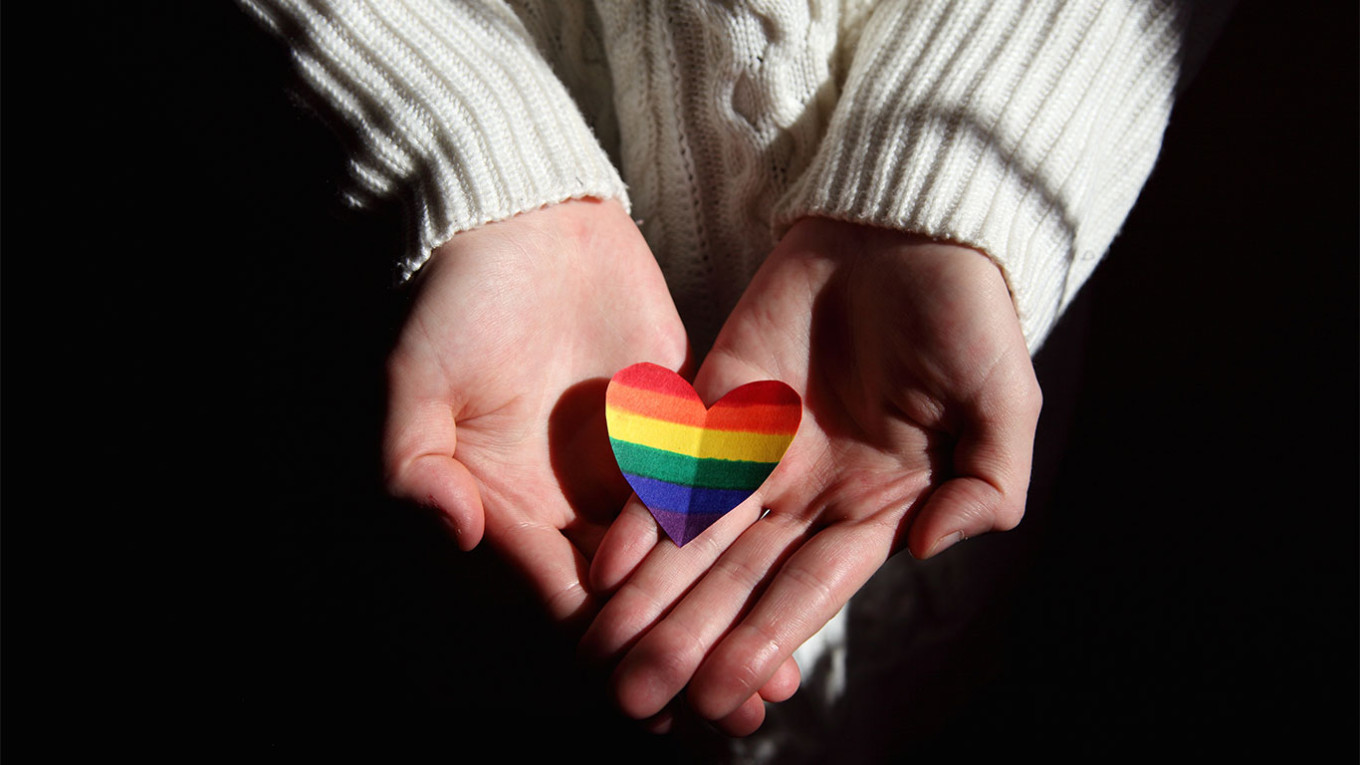Transgender and non-binary people in Russia have faced rising harassment and physical abuse since the start of the war in Ukraine, activists say, as the Kremlin doubles down on an ideology of “traditional values” in the face of international isolation.
In particular, the country’s mobilization campaign has led to transgender women still officially classified as men facing conscription into the historically transphobic Armed Forces.
The first weeks of the war were psychological “hell,” according to Nastya, a 35-year-old Russian transgender woman who requested anonymity.
“If they had announced mobilization back then I would have had no idea what to do,” Nastya, told The Moscow Times.
“I didn’t have my papers yet. I didn’t even have certificates, so legally I was still a man.”
Russia’s invasion of Ukraine appears to have resulted in a new wave of official pressure not only against trans people, but also the country’s broader LGBT community, with legislation recently approved by the Russian parliament that is set to expand a 2013 ban on the “propaganda of non-traditional relationships.”
And, in what is seen as a sign of future anti-LGBT measures, President Vladimir Putin last month signed a document to “strengthen Russian traditional spiritual and moral values.”
The current climate brings the most risk for trans people, according to activists.
Trans people “already face transphobia, homophobia and racism in everyday life, and when something like this war happens these groups become the most vulnerable,” says Anna-Maria Tesfaye, co-founder of Queer Svit, an NGO that helps LGBT people and ethnic minorities from Ukraine, Belarus and Russia affected by the war.
“Transgender women in particular have to spend much more money and resources to avoid constant harassment.”
A small network of LGBT support groups and NGOs have played a key role in helping trans people since the outbreak of war, providing legal advice as well as psychological and financial support.
“The demand for emergency psychological help has grown sharply,” says Alexander Voronov, the head of St. Petersburg-based LGBT group Coming Out.

Above all, it was Putin’s call-up of tens of thousands of Russians for military service in Ukraine that was a cause of fear for transgender women.
“There is fully-fledged transphobia in the Russian army and it is possible that the person will fall victim to a hate crime well before they make it to the frontlines,” said Tesfaye.
The first openly transgender woman serving in the Russian army, Askatla, told independent media outlet Meduza earlier this month that once fellow soldiers became aware of her “double life,” she faced harassment, bullying and threats of physical abuse.
While gender dysphoria is a valid exemption from military service, changing your documents to be legally identified as a woman is the most reliable way to avoid being called up, according to advice provided by Trans*Coalition, an NGO supporting transgender and non-binary rights activists from the Caucasus, Central Asia and Eastern Europe.
The legal process of gender reassignment in Russia, however, is not free and can cost upwards of 20,000 rubles ($326).
Queer Svit has provided money for dozens of Russians to undergo this process since mobilization. One of those who benefited was 20-year-old transgender woman Mihelena.
“They basically saved my life,” Mihelina, 20, who received financial assistance from Queer Svit, told The Moscow Times. “I’m a student and that was a very hefty sum of money for me.”
In addition to the steep costs, legal gender reassignment in Russia is often a deeply humiliating experience for transgender people.
“An official at the passport office told me: ‘Well, is your life better now that you changed your gender? Hope you’re not trying to change anything else’,” said Nastya, who went through the process a few months before the start of Russia’s mobilization drive.
Though exact numbers are difficult to estimate, social media reports and information obtained by activists suggest that several transgender women have received draft notices.
“I was visited by enlistment officers, but I wasn’t home,” user Mishel Svarogova wrote on a public page set up by a transgender rights NGO on social network VKontakte.
Alongside the risks of being mobilized, the general climate for LGBT people in Russia also appears to have deteriorated in recent months.
A controversial anti-LGBT bill that was passed by the Russian parliament Thursday will — if it is signed into law by Putin — ban any public depictions of “non-traditional” relationships in public spaces, the media, books, films and art.
Punishments would include fines of up to 400,000 rubles ($6,593) for individuals and up to 5 million rubles ($82,400) for NGOs.
“The Russian government is really amplifying the narrative of ‘traditional values’ right now and even ordinary people are becoming more and more conservative,” said Tesfaye.
“Of course, with that kind of mood in the country all the risks are heightened.”
Trans people have been among the hundreds of thousands of Russians opposed to the war who have fled the country this year — but going abroad requires financial resources and relocating to a new home carries its own risks.
Some former Soviet countries that have become popular destinations for emigre Russians — particularly in the South Caucasus and Central Asia — have high rates of transphobia.
“It is much harder to make the decision to leave,” said Queer Svit’s Tesfaye of trans people.
“There are a lot of reasons for that: from healthcare access to not feeling safe abroad.”
Both Mihelena and Nastya are among the trans women who have, at least for the moment, chosen to remain in Russia.
Mihelena, who requested anonymity to speak freely, said she wanted to stay in Russia in order to finish her university studies.
“The feeling of not being safe has always been there. And ever since the war started I realized that everything can change at any moment,” she said.
“I’m gripped by fear and anxiety. I’m scared to go outside. But what can I do?”
Leave a Reply